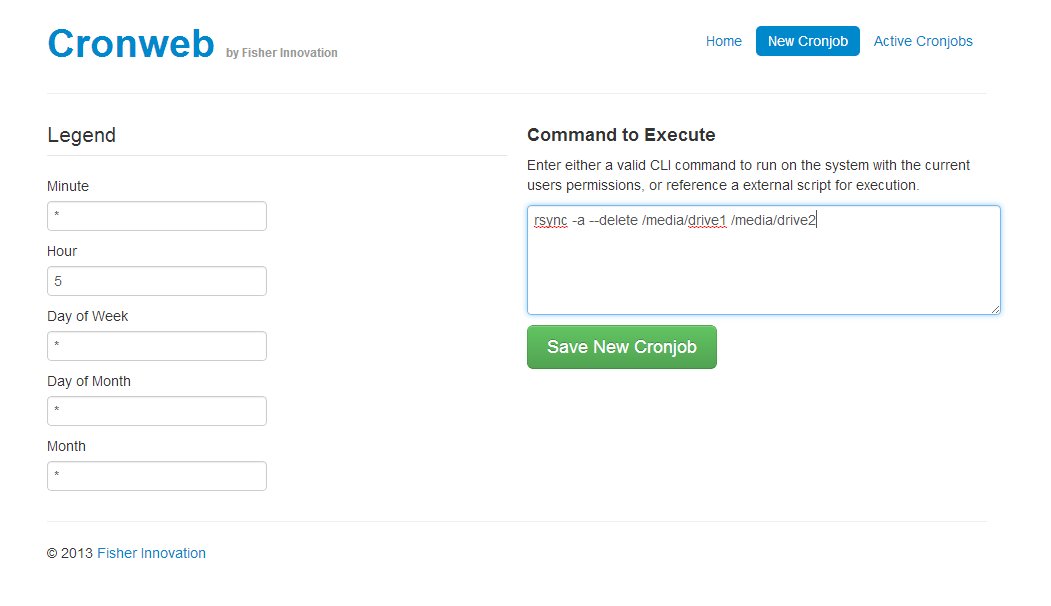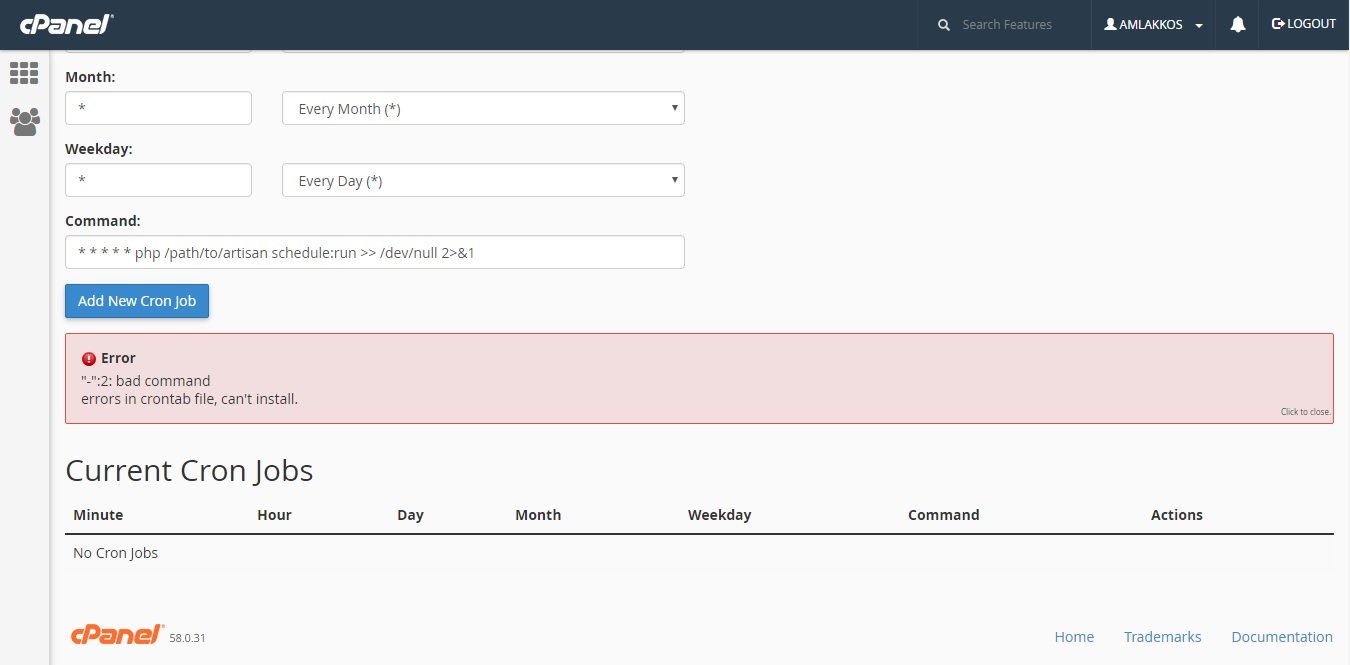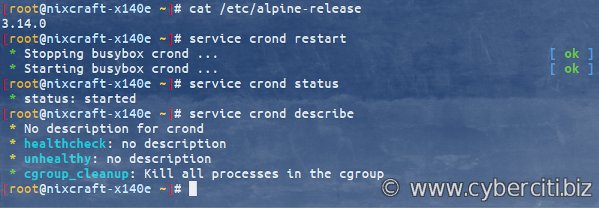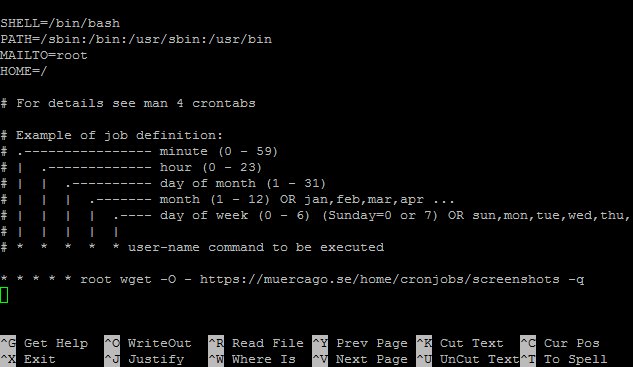Are you looking for an efficient solution to manage cron jobs in PHP? Look no further! PHP Cron Manager is the answer you’ve been searching for. With PHP Cron Manager, you can easily schedule, monitor, and control your cron jobs, ensuring that they run smoothly and on time. Gone are the days of manually editing cron files and struggling with complex configurations. PHP Cron Manager simplifies the process, allowing you to focus on what matters most – your tasks and projects. Let’s dive in and explore the power of PHP Cron Manager in this article.
PHP CRON MANAGER: A Comprehensive Guide
Introduction to PHP CRON Manager
Managing scheduled tasks in web applications is an essential aspect of ensuring their smooth operation. One of the widely used methods for scheduling tasks in PHP applications is through the use of a CRON system. CRON allows developers to automate the execution of scripts at predefined intervals. While PHP provides built-in functions to work with CRON, a dedicated PHP CRON Manager can greatly simplify the process and provide additional features. In this article, we will explore the concept of PHP CRON Manager in detail and discuss its benefits.
What is a CRON System?
A CRON system is a time-based job scheduler that executes recurring tasks or scripts on a server. It is commonly found in Unix-like operating systems, and it allows users to schedule tasks to run automatically at specific intervals, such as minutes, hours, days, or months. CRON systems use a configuration file to define the scheduling parameters and the script or command to be executed.
The Need for a PHP CRON Manager
While PHP has built-in functions like `cron_schedule()` and `cron_job()` to schedule tasks, managing and monitoring tasks can become cumbersome as the complexity of the application grows. A dedicated PHP CRON Manager provides a user-friendly interface to create, edit, and manage task schedules. It offers several advantages, including:
- Simplifying the management of CRON jobs through a graphical interface.
- Providing a centralized location to monitor and control task execution.
- Allowing easy configuration of task parameters, such as schedule intervals and error handling.
- Enhanced security by controlling access to the CRON system.
- Improving efficiency by optimizing task execution and resource allocation.
Features of PHP CRON Manager
A PHP CRON Manager usually comes with a range of features that make it a valuable tool for developers. Some of the common features include:
1. Task Scheduling
A PHP CRON Manager allows developers to schedule tasks at specific intervals. It provides various options for defining schedules, such as:
- Minute-based scheduling: Executes a task every X minutes.
- Hour-based scheduling: Executes a task every X hours at a specific minute.
- Day-based scheduling: Executes a task every X days at a specific time.
- Month-based scheduling: Executes a task on specific months, days, and times.
- Custom scheduling: Allows developers to define complex schedules using cron expressions.
2. Task Management
PHP CRON Managers provide an intuitive interface to manage tasks effectively. Some key features include:
- Task creation: Easily create new tasks with customizable parameters.
- Task modification: Edit existing tasks to update schedules or other parameters.
- Task deletion: Remove unnecessary tasks from the CRON system.
- Task priorities: Set task priorities to control execution order.
3. Error Handling and Reporting
An efficient PHP CRON Manager includes robust error handling and reporting mechanisms. It allows developers to:
- Specify error handling behavior, such as terminating a task on error or logging errors.
- View detailed error logs to diagnose and troubleshoot task failures.
4. Task Dependencies
In complex applications, tasks often have dependencies that need to be satisfied before execution. A PHP CRON Manager can handle dependencies by providing features like:
- Defining task dependencies: Specify dependencies between tasks to enforce execution order.
- Dependency resolution: Automatically execute dependent tasks before the dependent ones.
5. Task Monitoring and Logging
Monitoring the execution of scheduled tasks is crucial for maintaining application stability. A PHP CRON Manager offers:
- Real-time task monitoring: Track the status and progress of running tasks.
- Task logs: Access logs to review task execution history and identify issues.
6. System Performance Optimization
PHP CRON Managers often include features that help optimize system performance, such as:
- Resource allocation: Control the system resources allocated to task execution.
- Concurrency management: Define the maximum number of concurrent tasks to prevent overload.
Benefits of Using a PHP CRON Manager
Implementing a dedicated PHP CRON Manager in your web application offers numerous benefits, including:
- Improved productivity: Simplifies task management, enabling developers to focus on core functionalities.
- Enhanced reliability: Minimizes human errors and ensures tasks are executed as intended.
- Centralized control: Provides a single interface for managing all scheduled tasks.
- Efficient resource utilization: Optimizes task execution and resource allocation, improving overall system performance.
- Error handling and troubleshooting: Streamlines error handling, making it easier to identify and resolve issues.
- Scalability: Easily scale the application by managing an increasing number of tasks effortlessly.
A PHP CRON Manager simplifies the management and monitoring of scheduled tasks in PHP applications. With its user-friendly interface and comprehensive features, it offers an efficient way to schedule, manage, and optimize task execution. By implementing a PHP CRON Manager, developers can streamline their workflow, enhance application reliability, and ensure efficient resource utilization.
Frequently Asked Questions
Here are some commonly asked questions about PHP CRON Managers:
Q: Can I use a PHP CRON Manager on shared hosting?
A: It depends on the hosting provider. Some shared hosting providers may restrict access to CRON systems, making it challenging to use a PHP CRON Manager. However, if you have access to CRON, you can typically use a PHP CRON Manager.
Q: Are PHP CRON Managers only for complex applications?
A: While PHP CRON Managers offer advanced features suitable for complex applications, they can also benefit smaller projects. Even a simple application can benefit from the ease of managing and monitoring tasks provided by a PHP CRON Manager.
Q: Can I define custom intervals for task scheduling with a PHP CRON Manager?
A: Yes, most PHP CRON Managers allow you to define custom intervals using cron expressions. This flexibility enables you to create complex schedules tailored to your application’s specific needs.
Q: Are PHP CRON Managers secure?
A: PHP CRON Managers can enhance security by providing controlled access to the CRON system. However, it is crucial to follow best practices, such as setting appropriate permissions and avoiding the execution of untrusted scripts, to ensure the overall security of your application.
Run a PHP Script Automatically at a Specified Time
Frequently Asked Questions
What is a PHP Cron Manager?
A PHP Cron Manager is a tool that allows you to schedule and manage tasks to run at specific intervals using the Cron system. It helps automate repetitive tasks and ensures they are executed at the desired time without manual intervention.
How does a PHP Cron Manager work?
A PHP Cron Manager works by utilizing the Cron system, which is a time-based job scheduler in Unix-like operating systems. It allows you to create cron jobs that specify the commands or scripts to be executed and the schedule when they should run. The PHP Cron Manager provides a user-friendly interface to manage and schedule these cron jobs.
What are the benefits of using a PHP Cron Manager?
Using a PHP Cron Manager offers several benefits, including:
- Automation: It allows you to automate repetitive tasks, such as database backups, data synchronization, and report generation, saving time and effort.
- Scheduling: You can schedule tasks to run at specific intervals, such as hourly, daily, weekly, or monthly, ensuring they are executed consistently.
- Centralized management: It provides a centralized interface to manage all your cron jobs, making it easier to monitor, edit, and disable or enable them as needed.
- Error handling: A PHP Cron Manager can handle errors and provide notifications if a scheduled task fails to execute properly, helping you identify and resolve issues promptly.
Is it difficult to set up a PHP Cron Manager?
No, setting up a PHP Cron Manager is typically straightforward. You need to install the manager on your server, configure the Cron system to recognize it, and then access the manager’s interface to create and manage cron jobs. Detailed instructions and documentation are usually provided to guide you through the process.
Can I use a PHP Cron Manager with shared hosting?
The ability to use a PHP Cron Manager with shared hosting depends on the hosting provider’s policies and server configuration. Some shared hosting providers may restrict or disable access to Cron systems, affecting your ability to use a PHP Cron Manager. It is recommended to check with your hosting provider or consider a VPS or dedicated server if Cron functionality is essential for your needs.
Final Thoughts
In conclusion, the PHP Cron Manager is a valuable tool for efficiently managing cron jobs in PHP. With its user-friendly interface, users can easily schedule and monitor tasks, ensuring they run at the desired intervals. This powerful tool simplifies the process of automating repetitive tasks, making it a must-have for developers and system administrators. With the PHP Cron Manager, you can streamline your workflow, save time, and ensure the smooth execution of your cron jobs. Take advantage of this convenient solution to enhance your PHP project’s efficiency and reliability.




